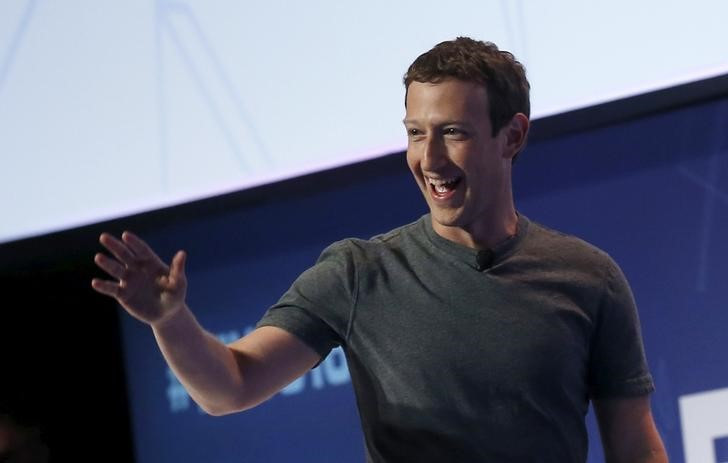Mark Zuckerberg opens up about 'creepy' virtual reality army photo

Facebook CEO Mark Zuckerberg's surprise cameo at this year's Mobile World Congress during Samsung's Galaxy S7 press conference in Barcelona should have turned a few heads. Instead, he casually strolled past a sea of people wearing Samsung Gear virtual reality (VR) headsets who did not even know he was present at the event.
The eerie photo that was posted by Zuckerberg on his public Facebook feed has since gone viral and has been described as "creepy", "terrifying" and compared to a grim version of the Matrix. It has also raised questions about the future of virtual reality and its isolating power.
The social media tycoon, however, has now hit back at critics in an interview with Axel Springer CEO Mathias Döpfner for the German newspaper Die Welt am Sonntag and said: "Nothing could be further from the truth."
Zuckerberg explained: "The exact opposite is the case. What was going on inside the headsets was a video of children playing soccer in some faraway place. You could look around and you could see the kids playing soccer around you and it was a shared experience with everyone in that place that would have been impossible otherwise."
Posted by Mark Zuckerberg on Sunday, February 21, 2016
While the photo has an eerily resemblance to Apple's 1984 Superbowl commercial – for the Macintosh computer – that featured a soulless audience worshiping 'Big Blue', Zuckerberg said, "People tend to be worried about every new technology that comes along."
"Critics worry that if we spend time paying attention to that new kind of media or technology instead of talking to each other that that is somehow isolating," Zuckerberg told Döpfner. "But humans are fundamentally social. So I think in reality, if a technology doesn't actually help us socially understand each other better, it isn't going to catch on and succeed."
Facebook acquired Oculus in 2014 for $2bn (£1.4bn) and has since partnered with Samsung to develop the Gear VR headset. Samsung, LG and Google are also among the major tech companies racing to roll out virtual reality technology to consumers. Although Zuckerberg says the technology remains a long way from reaching the mass market, he does argue that VR will be the "most social platform" in future and will allow people anywhere in the world to connect, bond and create digital social experiences.
Immersive technology has advanced fairly quickly in recent years, given the launch of Oculus's Rift to create exciting movies, games and other VR experiences as well as Google's pocket-friendly options such as the Cardboard VR viewer. Since Gear VR launched in November 2015, consumers have already watched more than a million hours of video via the device. More than 200 games and apps are now available in the Oculus Store.
On February 21, Facebook said in a blog post: "As we continue to make big breakthroughs in the technology behind VR, we're also investing in efforts to explore immersive new VR experiences that will help people connect and share. We've already helped people connect in a wide variety of ways on mobile devices - ranging from Facebook and Instagram to Messenger and WhatsApp - and now we want to apply the same approach to the new medium of VR."
Regardless of whether the photo is seen as a foreshadowing of a grim zombie-esque future or just another Scoble in the shower incident, the social media giant seems determined to promote the new medium as the future of social interaction, bonding and sharing.
"You could probably go all the way back to the first books," Zuckerberg told Döpfner. "I bet people said 'why should you read when you could talk to other people?' The point of reading is that you get to deeply immerse yourself in a person's perspective. Right? Same thing with newspapers or phones or TVs. Soon it will be VR, I bet."
© Copyright IBTimes 2025. All rights reserved.




















